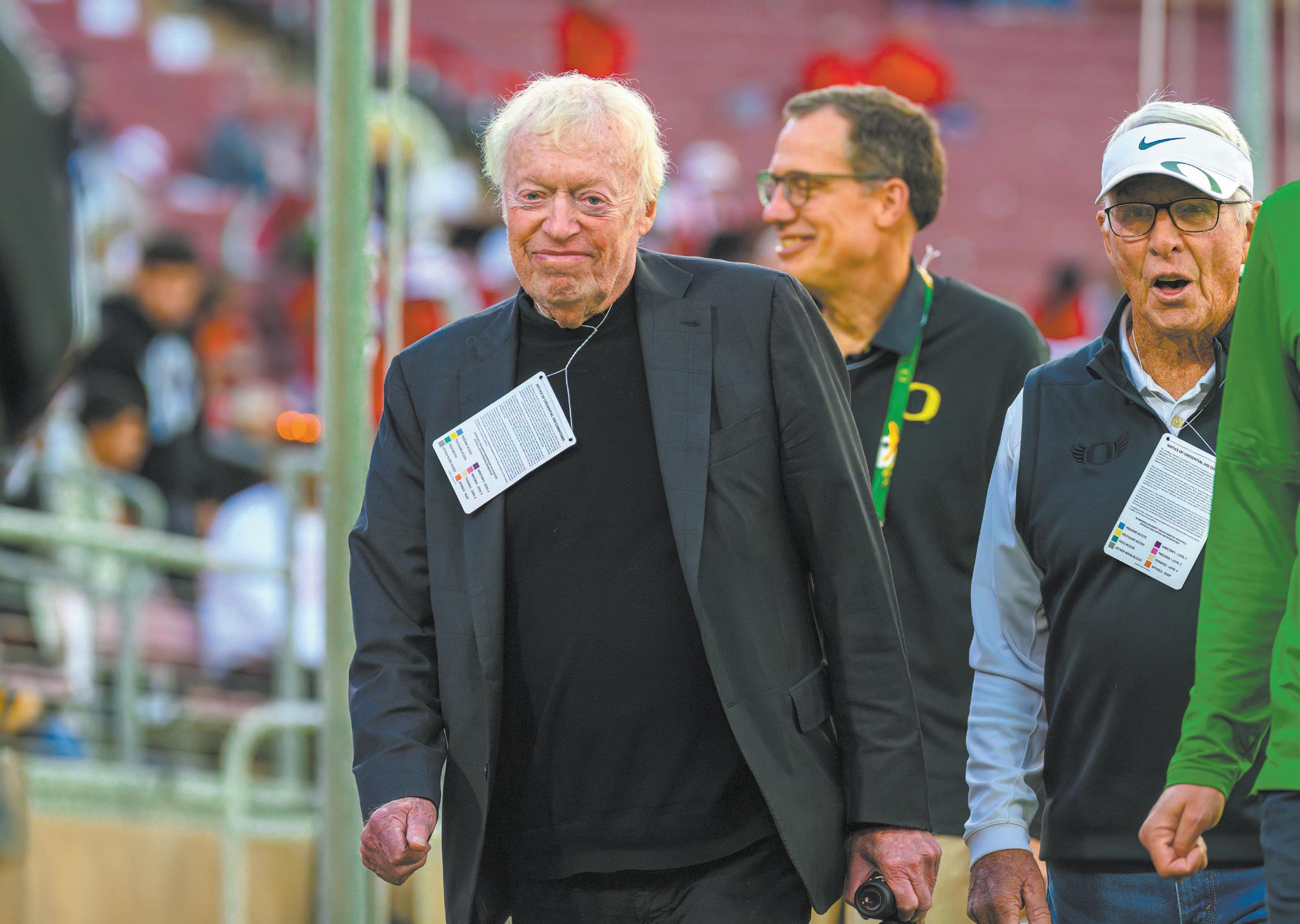MONDAY, OCT. 28, 2024
Political Parties on NIL
Even though sports could seem far removed from this election, NIL is one subject to consider in how politics relates to college sports
Political transparency: Ghost of Christmas Past See pg 11 for story



MONDAY, OCT. 28, 2024
Even though sports could seem far removed from this election, NIL is one subject to consider in how politics relates to college sports
Political transparency: Ghost of Christmas Past See pg 11 for story


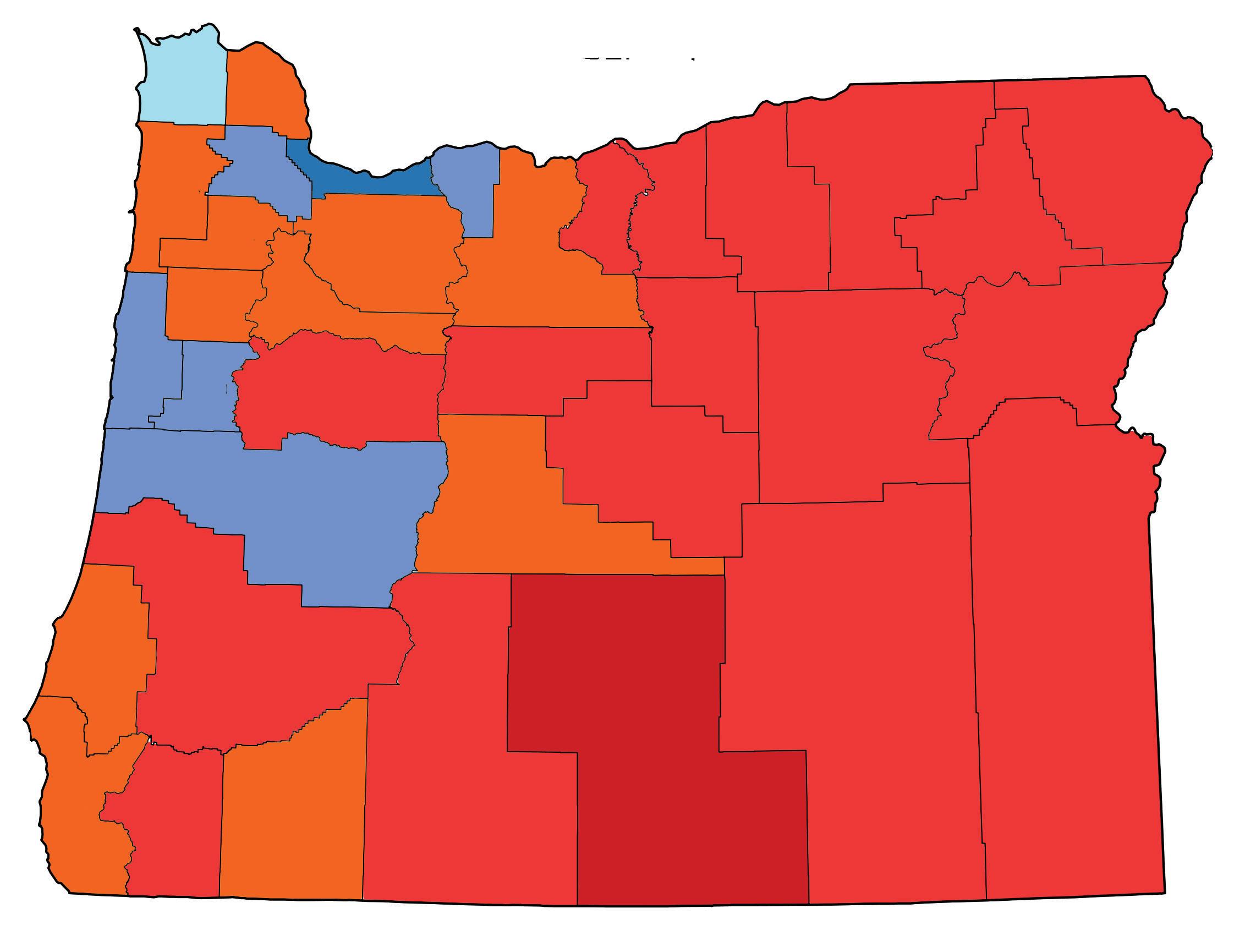
By Stephanie Hensley City News Reporter
With the 2024 general election already underway, student voters may be looking for answers about the voting process in Oregon and who is on their ballot. The Daily Emerald is providing a detailed voter election guide to help create a more informed electorate.
For voters putting their ballot in the
mail (no postage required), all ballots being mailed must be postmarked by Nov. 5 and for voters using an Official Ballot Drop Site they must deposit it by 8 p.m. on election day.
Once the ballots are received, the county elections office counts each one.
Dena Dawson, the Lane County Clerk, has been working in county elections offices for 18 years and is responsible for overseeing the election locally. She said
2022 Oregon Governor election results by county
Candidates:
voters are already submitting their ballots early in anticipation of the upcoming presidential election.
“In presidential elections you expect 85% to 90% turnout in Oregon. We are expecting a very high turnout and we are seeing that,” Dawson said. “[Monday] is the first day that we’re collecting ballots from drop boxes and our drivers and bipartisan teams have been back from their routes already and returning lots of ballots.”
How students are spending their election night
See

By Angelina Handeris Campus News Reporter
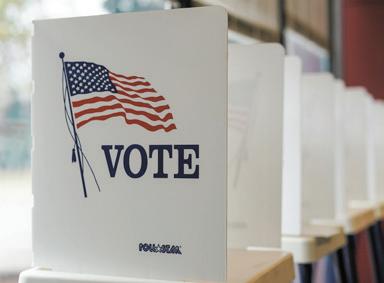
Oregon State Public Interest Research Group, UO College Democrats and other political groups on campus have been using various strategies to increase voter registration throughout the UO student body
Election day is around the corner, and in recent weeks several student groups on campus have been working to reach student voters and encourage voter registration.
Oregon Student Public Interest Research Group is a student-funded, student-run, nonpartisan organization on campus that has been campaigning to get students registered to vote. The New Voters Project is a project run by OSPIRG with the goal of increasing civic engagement throughout campus.
“We really believe in peer-to-peer contacts,” Kali Kleven, who runs the New Voters Project at the University of Oregon, said. “We believe that when students hear something from someone who they can relate to, it sticks more.”
OSPIRG uses strategies such as tabling and working with coalitions to reach students. The organization has teamed up with other groups on campus, such as Associated Students of the University of Oregon, to reach more voters.
“We get people registered to vote, and then we contact them ahead of elections to make sure they know where their polling locations are,” OSPIRG Chapter Chair Sam Broussard said.
According to Kleven, low voter turnout amongst college students is often due to a lack of knowledge and resources about registration and voting.
“I was really lucky in high school. They sat us down and registered us to vote. A lot of people don’t have that, especially if you grew up in a





EDITOR IN CHIEF
Tristin Hoffman
PRINT MANAGING EDITOR
Mathias Lehman-Winters
DIGITAL MANAGING EDITOR
Alicia Santiago
CAMPUS NEWS EDITOR
Jasmine Saboorian
CITY NEWS EDITOR
Mathias Lehman-Winters
INVESTIGATIONS EDITOR
Tarek Anthony
ARTS & CULTURE EDITOR
Jess McComb
SPORTS EDITOR
Brady Ruth
OPINION EDITOR
Beatrice Byrd
PHOTO EDITOR
Molly McPherson
COPY CHIEF
Alex Woodward
COPY EDITOR
Molly Townes
VIDEO EDITOR
Kendall Baldwin
PODCAST EDITOR
Evan Giordano
SOCIALS EDITOR
Sydney Wolfe
VISUALS EDITOR
Noa Schwartz
DESIGN EDITOR
Sam Butler
DESIGNERS
Eva Andrews
Adaleah Carman
Gabriela Martinez Contreras
Olivia Hoskinson

PUBLISHER AND PRESIDENT
Eric Henry (X317) ehenry@dailyemerald.com
VP OPERATIONS
Kathy Carbone (X302) kcarbone@dailyemerald.com
DIRECTOR OF SALES & DIGITAL MARKETING
Shelly Rondestvedt (X303) srondestvedt@dailyemerald. com
CREATIVE & TECHNICAL DIRECTOR
Anna Smith (X327) creative@dailyemerald.com
STUDENT SALES MANAGER
Lola Tagwerker
ACCOUNT EXECUTIVES
Cooper Gast
Elliot Byrne
Ysai Hong
Nate Ghilarducci
THE DAILY EMERALD
The Daily Emerald is published by Emerald Media Group, Inc., the independent nonprofit media company at the University of Oregon. Formerly the Oregon Daily Emerald, the news organization was founded in 1900.
Jack Dodson
UO student
Climate Justice League steering committee member Fossil Free UO campaign co-lead
The UO Foundation, which manages the $2.8 billion endowment of the University of Oregon, has been lying to us for 8 years. In June of 2016, Paul Weinhold, President and CEO of the UO Foundation, claimed, “We have one percent invested in carbon-based energy [...] We don’t have any direct investments [in fossil fuels].”
In September 2016, the UO Foundation promised to let those investments “expire without renewal, ending our investment in carbon-based fuel sources,” though it wouldn’t divest immediately, citing complications with existing agreements.
This announcement came after years of pressure from students, faculty, staff and the greater Eugene community.
Students won divestment! Well, not exactly. The Foundation’s investments still weren’t publicly visible, meaning people had to trust UO to keep its promise.
In 2021, students pressured the Foundation
The University of Oregon released a Clery Act Statement with information on a reported “drugging” at a fraternity party hosted last Friday, Oct. 18, by Alpha Tau Omega
for an update. In a resulting Daily Emerald interview with Weinhold, he said fossil fuel investments were “literally a fraction of what we had in 2016.”
In 2023, when the investments should have ended, the Foundation’s website said “Currently, less than 5% of the Foundation’s direct holdings are invested in fossil fuel extraction and all remaining direct investments will expire by 2027.” It still says that today.
Today, it says less than 5% is invested in fossil fuel extraction and it will expire by 2027.
President Scholz speaks about maximizing the Foundation’s returns, however, divesting from fossil fuels does not mean losing money.
Furthermore, investing in fossil fuels is incredibly costly in the long term, as it funds greenhouse-gas emitting projects that worsen climate change.
The fight for divestment is not over. The UO Foundation must disclose its investments.
The UO community must pressure the Foundation to divest and disclose, as Foundation leaders will resist any change. Let’s make UO better, and make the world better in the process.
Emerald Media Group 1395 University St.,#302 Eugene, Or 97403 (541)-346-5511

By Jasmine Saboorian, Ysabella Sosa and Riley Fox Campus News Reporters
A University of Oregon student reported that an “unknown substance may have been added to their drink” at a fraternity party hosted on Oct. 18 by Alpha Tau Omega, UO announced in a statement.
The party was hosted at ATO’s main chapter house at 616 E 16th Ave.
Welcome to Overhead Oregon! In our new segment, the Daily Emerald will feature anonymously submitted quotes to be the subject of a cartoon!
These could be anything from the silly to the strange, as long as it is heard in passing and taken completely out of context. Heard your classmate talking about penguin philosophy? Submit it! Hear any juicy gossip? Submit it!
This comic series aims to shed a whole new light on the University of Oregon’s dayto-day. Send in your best quotes to nschwartz@dailyemerald.com for a chance to have your quote chosen for Overheard Oregon. Remember, everything is completely anonymous and only the best quotes will be selected.
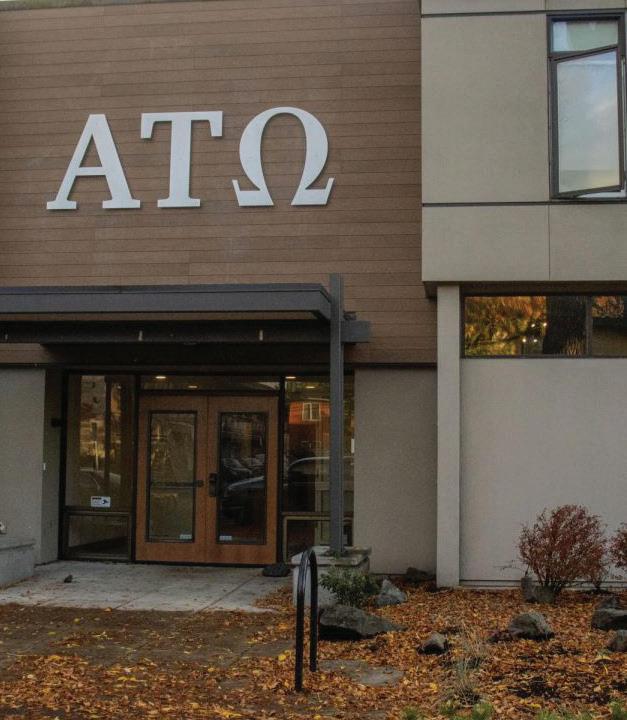
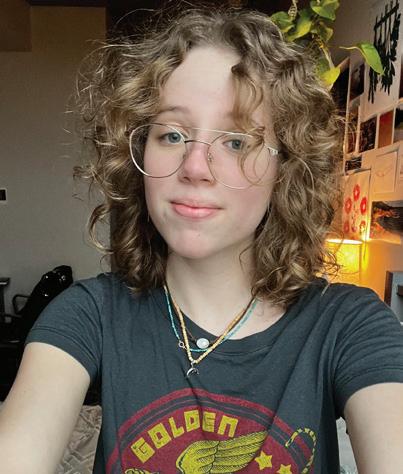
Overheard Oregon is produced and illustrated by Noa Schwartz, a third year illustrator and editor on the Visuals section. In her free time she loves to ride her bike, listen to music and crochet.

How are you feeling about voting in your first election/ presidential election?
“I feel good. It’s going to be a very close one I think.”
- Kaylen, UO Student
How are you getting your ballot? Are you nervous about getting your ballot?
“My parents are coming for family weekend and so they’re bringing it down”
- Shamika, UO Student
Why is it important to vote in this election?
“Well for me, most of the members of my family aren’t able to vote. We’re from Mexico so i’m one of the only people in my generation who can vote. So it’s never been a question of ‘are you gonna vote?’ It’s always ‘who are you voting for?’ because I know it’s important to my family.”
- Abril, UO Student
For some students, the 2024 election will be their first time voting. Both past voters and first time voting students shared how they feel about participating in the democratic process.
By Corey Hoffman Campus News Reporter
As election day quickly approaches, some students at the University of Oregon reflect on voting in their first presidential election, and for a select few, their first election ever.
Logan Lau said he’s not focused on the election, but still plans to vote.
“I guess I don’t keep up with politics too much. I’m more focused on my school work,” Lau said. However, Lau said he plans to receive his ballot in the mail.
Piper Pellegrino said she’s excited to vote in her first election, and that the stakes of this presidential election are high.
“The election feels bigger with the two candidates we have and what they’re individually supporting,” Pellegrino said. “I feel like there is a lot at stake for certain people and groups in the country. It is very interesting to have this be my first election.”
Pellegrino, an Oregon resident, said she’s having her ballot mailed to her.
“I am a little bit nervous [about getting my ballot] because I don’t know how it works or anything. My parents are helping me but I have the basic worries about the address being wrong or it’s not going to get to me.”
Gabby McIntyre said she didn’t vote last year, but plans to vote this time around.
“I feel like, since it is a presidential election, it’s a big deal. Especially right now. I feel like a lot of times politics are so divisive and it could be a really make-or-break election for the country just because I feel like they [candidates] are both very different,” McIntyre said.
Aysia Rattanaphosy said she’s confident about the election after watching the presidential debate and is more worried about other races such as the House of Representatives and Congress in general.
“There’s always been a trend of political polarization. I think this election in particular is probably the most interesting for me because it’s the first time we’re seeing a woman of color running as a presidential candidate,” Rattanaphosy said.
2024 is not the first time a woman of color has run for president, but is the first time a woman of color has run at the top of a major party ticket.
Rattanaphosy emphasized the importance of voting.
“It’s the only way that you actually have control of the people in power and your government. The only way you can put your voice out there is by voting for people who have the same beliefs and values as you.”
Finn Kierstead has voted in the past and stressed why young people should get involved in the election.
“That’s how we’re represented in our democracy. This country is founded on the values that everybody has a voice in leadership and we run almost like a council that the people should be able to run. If people aren’t voting or aren’t caring, eventually they’re just going to lose that right,” Kierstead said.
Billy Chao has never voted in an election and said he doesn’t plan on voting this year.
“It’s just too much trouble,” Chao said. Despite not voting, Chao said he does believe that this election is significant.
“It’s kind of a big deal. A lot of things happened with Trump and Harris and whatnot.”
Katie Ryan said she’s excited and overwhelmed to vote in her first election.
“I’m excited to finally have a say,” she said.
home where there’s political tension, it might not be an open conversation,” Kleven said. “People are just genuinely not aware, I think, of the steps they can take and how easy it is to actually register and vote.”
Historically, 18 to 29-year-olds have had the lowest voter turnouts among all age groups, with percentages trending higher with older age groups.
“Voting is absolutely important for anyone who has any interest in not only politics, but just their local government,and even culture because culture is downstream of politics,” UO College Republicans President Cassidy Perkins said.
UO Republicans did not run any voter registration events, but are working to do more initiatives and charity work in the future, according to Perkins.
According to the US Census Bureau, in 2022, only 49.1% of 18 to 24-year-olds were registered to vote.
Another group working to increase voter registration is the UO College Democrats. They have been running a voter registration drive and tabling at the Erb Memorial Union’s Fishbowl and Amphitheater.
“The more young people that vote, the more that young people have to be taken seriously as a voter bloc. When not very many young people
are voting, when the politicians are trying to figure out what to do in order to get more votes, they’re not going to be looking at young people,” Bryson Petterborg, president of the UO College Democrats said.
UO College Democrats ran a voter registration drive from Oct. 9 to Oct. 11 from 3 p.m. to 5 p.m., and continued its efforts until Oct. 15, the voter registration deadline in Oregon.
“Whatever that issue is for you, whatever you’re interested in, it’s really important that you go out and vote and campaign on the issues so that you can get that specific issue addressed,” Petterborg said.
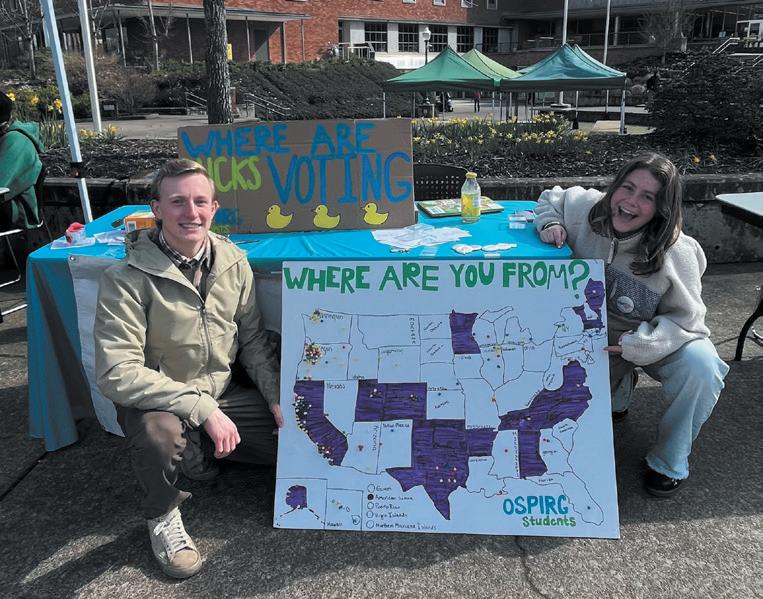
Ryan is receiving her ballot in the mail and expressed her worries about getting it safely.
“My mom is mailing it to me and then I’m mailing it back to her. I’m a little nervous about it getting sent in the mail because living in a house, mail always gets stolen so that is a little nerve-wracking,” Ryan said.
Ryan said she feels that she’s more aware of what’s going on in this election than in the past.
“Since there is a woman running, that forces me to really want to have a say in it. I was kind of ignorant in years past, not really sure how the government works and all of these things that affect my everyday life. Now I’m more aware of all these choices and now having a say in it makes it 10 times more important than previous elections,” Ryan said.
Lacy Taylor is from Pennsylvania and got an absentee ballot in the mail.
“I was a little nervous just because I’ve never done a mail-in ballot before and I’m definitely from more of a swing state [Pennsylvania] so I wanted to make sure it got in, but overall I feel good now that it’s done,” Taylor said.
Delany McCuen has voted before and plans to vote this year. She stressed the importance of voting for people her age.
“This election feels different because there’s two very different people that are running and [they] want different things for the country, and one of them is a woman. There’s a lot on the line so it’s just high stakes.”
McCuen urged her fellow students to vote, emphasizing that even though it can be intimidating, it’s worth it.
“It’s our right. It’s important to use your voice because, although sometimes it might not feel like it, every vote really does matter,” McCuen said.
Most students are spending Nov. 5 watching the results live, while some have said they would rather not pay attention to the news
By Sasha Love Campus News Reporter
In nearly a week, a new president of the United States will be elected. Some University of Oregon students are figuring out how — and where — they will be spending their election night.
Republican candidate Donald Trump and Democratic candidate Kamala Harris are vying for leadership in a very close race, while Green Party candidate Jill Stein and Libertarian candidate Chase Oliver are in the race with about 1% of the vote respectively.
Emma Wade, a junior, said she will be watching the election very closely.
“I’ll probably be glued to the television,” Wade said. “I hope Kamala [Harris] wins…I’d like to call it a prediction.”
Maddie Lindsay, a freshman, is planning on attending a watch party on the sixth floor of New Residence Hall. She said she doesn’t want to predict what will happen before the date.
Allison Buturla, a sophomore, also said that she doesn’t want to overthink the results.
“I don’t want to predict anything because I don’t want to jinx it,” Buturla said.
While some students are mentally preparing for election day, others said that they didn’t have any plans to watch the election and wanted to avoid the occasion altogether.
Katie Newnham, a freshman, said that she doesn’t want to spend time thinking about the results until after they have been released.
“I’ll probably have my head in the sand until the next day,” Newnham said.
Kenzie Harrold, a junior, plans on burying her head in her blankets instead.
“I have no plans, I don’t even know what day election day is,” Harrold said.
“[To be] 100% honest, I will be asleep.”
Both the UO College Republicans and the UO College Democrats do not have any watch parties or events planned for election night.
Whether students are anxiously watching the results live with their friends or avoiding the news altogether, Nov. 5 will be an impactful night.
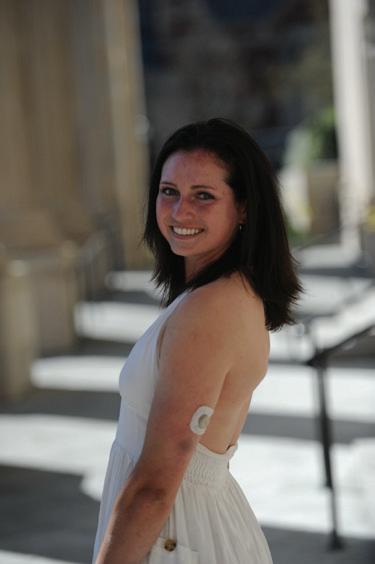
Transparency in politics is like catching smoke with your bare hands
and mental health and enjoys thrifting, running or hiking in her spare time.
By Brianna Carrasquillo Opinion Columnist
Sequestered in my own row on a vacant flight back to Eugene, I used much of my time to dissect current events and queued a few Wall Street Journal podcasts. One podcast episode discussed the nature of Elon Musk’s “complicated” political ties and anonymous Trump donations that were recently unearthed. I reclined and listened attentively to the ways donor dollars are covertly shaping our decisions.
It got me thinking: the rise of “social welfare organizations” enables high-profile figures like Musk to contribute significant funds without disclosing their identities. How does this influence our democratic process? As anonymous contributions mold policy and determine public opinion, advocacy must start at the ground level to ensure stricter regulations and accountability.
In 2022, you might’ve been familiar with the mysterious advertisements infesting your TVs, attacking social issues related to gender-affirming care and immigration. So who paid for these?
Wealthy contributors such as Musk are to blame for these two-headed assaults on the Democratic party, traced back to his “Citizens for Sanity” campaign that raised $50 million.
Recent data points to $1,525.6 million raised by this year’s election candidates. Roughly $900 million from Harris’s committee was consolidated, while more than $400 million has been fundraised from outside sources.
On Trump’s end, the billionaire businessman has secured significantly less, with $367 million from his committee and $613 million
from outside supporters. The largest individual contribution I could find comes from Winred in Virginia, amounting to $592 million from June 5 as a Trump-supporting endorsement.
In a state like Oregon, which prides itself on historically progressive values, it’s disheartening to see proposals generated that preserve the status quo.
Political donations are seeds scattered by a gust of wind, taking root only by influence. Prior to news spiraling about the upcoming election, it wasn’t something I carried with much weight.
That’s the reality of our political landscape — the currency of influence is obscured, stifling accountability.
However, signs of progress continue. Oregon House Bill 4024, which was passed in March, establishes campaign finance limits and disclosure requirements to amplify transparency around expenditures in Oregon, with regulations to take effect in 2027-28.
The creation of “small-donor committees” and “membership organizations” offers some semblance of a pathway to inclusivity, but the reality is that those with greater resources will always find ways to exploit the system. While HB 4024 is a step in the right direction, some — including myself — find it to be a superficial layer to cement the status quo.
In the 2022 election year, $5,000 was contributed to Kate Brown, the governor of Oregon from 2015 to 2023, while $11,248 was regarded as “unavailable for these records.” This may not seem like a lot in the grander scheme, but aren’t you curious to understand what’s operating behind closed doors?
Using Musk as a case study helped significantly in allowing me to understand the direct influence public figures can have on election outcomes. As Oregonians, we need to demand more than window dressing.
My advice? Read the fine print. That’s the beauty of our election system – you get to do your own homework and draw your own conclusions, but only if you read through the seams. It’s a letter collage that’ll provide clarity if you do your own research, develop your own opinion and be your own advocate.

Local elections often directly impact students’ day-to-day lives; however, they are frequently the ones that are least voted in. Your vote is your voice, and you need to use it.

By Aishiki Nag Opinion Columnist
Young voters are seriously underrepresented in local policies proposed or implemented, and the statistics of youth voters in local elections mirror this underrepresentation. As of the last census data, those aged 20-24 are the largest population in the county; however, they are one of the lowest age groups for consistent voter turnout.
One disheartening belief that nearly 41% of
young Americans hold is that their votes won’t make effective change or that voting in solid partisan states like Oregon won’t truly matter in changing election results or making a real difference.
Local candidates directly control the water flowing through your tap, the roads you take to work, the education people in your community receive, future rent increases, and other aspects of day-to-day life you might not even consider. Yet, youth voting remains consistently low.
Indigo Duvall, a registered voter in Eugene and sophomore at the University of Oregon, stressed the importance of local elections for her and her family.
In 2022, 13% of Lane County residents experienced food insecurity. College students are also highly vulnerable to food insecurity, with national reports finding that nearly 23% of students enrolled in a 4-year undergrad program experience food insecurity.
Programs such as Food For Lane County directly benefit from American Rescue Plan Act funds, which locally elected officials redistribute.
State representatives and local elected officials also work directly with community members on the administrative paperwork for accessing Supplemental Nutrition Assistance Program benefits, and some counties even contribute funding to broaden SNAP benefits.
“I can name off the top of my head five people who I know who are on SNAP, and would not be able to feed themselves if they didn’t [have it],” Duvall said. “There’s programs built into the school, we have a lot of little free pantries around
town, but SNAP is the only way some people can afford to live.”
Local leaders directly impact the funding and administration of these programs, and voting in this election directly helps your classmates buy a meal.
Local candidates are also more accessible than those federally elected. When looking through the ballot, people running for city councilor, a precinct county person, or even the Mayor might be someone you ran into at Safeway.
In an interview with Izzy Pope, a UO sophomore majoring in political science, she mentioned the importance of talking to a candidate and engaging actively.
“The federal ticket is a face and a brand and [doesn’t] feel like a real person, they represent something rather than someone, whereas local politics is more personal, individual and community tied,” she said.
Studies on constituency building and policy show that when constituents directly interact with their representatives, they are more motivated to hold themselves accountable to policy promises and advocate for grassroots policies.
Working with local politicians and elected officials is essential to ensuring that young people’s values are reflected in the community.
Young people have the numbers to change election outcomes, especially when local elections often come within a few votes. Voting in this election not only shapes the trajectory of the next few years but can also change next month’s direct outcome.
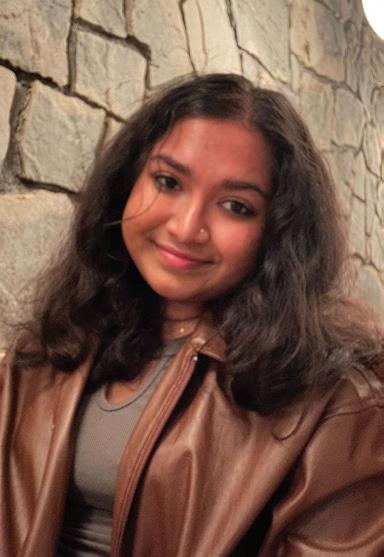
With voters primarily focusing on who is on their ballot this November, some may find themselves wondering how this election season’s ballot measures will affect them
By Kellan Quinn City News Reporter
The ballot measures Oregonians are voting on in 2024 will have a significant impact on not only the lives of Oregon voters, but also how they vote in the future. But what do they actually say? And what would happen if they were enacted? Let’s take a closer look at a few of the statewide measures on the 2024 ballot and what some Oregonians think about them.
Measure 115 would establish an impeachment process for elected state officials, similar to that in the federal system. Currently, the only way to remove an elected official before the next scheduled regular election is through a special recall election. The measure would allow a two-thirds vote in the Oregon state house to impeach an official, followed by a two-thirds Oregon state senate vote to remove the official.
Oregon is the only state in the nation where the legislature has no power to impeach the governor. The amendment has received widespread bipartisan support.
Measure 116 would establish the “Independent Public Service Compensation Commission” to set the salaries for statewide officials and Oregon legislative representatives, in addition to district attorneys and certain officials. Currently, compensation is decided by the Oregon Legislature. Under this measure, once the commission determines the salary, the legislature would have no authority to alter it.
The topic of paying Oregon’s elected officials more came into the limelight after Oregon’s former Secretary of State, Shemia Fagan, was forced to resign after it was revealed she had taken a lucrative consulting job with a cannabis company her office was responsible for auditing. Fagan cited her inability to be financially stable on her $77,000 annual state salary as reason for her taking the consulting position.
Measure 117 would implement ranked-choice voting in Oregon. If passed, voters would rank their choices for office, with the no. 1
ranking representing their preferred option. If a candidate receives 50% of the vote, they win. If no candidate reaches that threshold, the one with the fewest first-place votes is eliminated. If your top choice is eliminated, your vote would go to your second choice, this process would repeat until a candidate receives a majority of the vote.
Proponents of ranked-choice voting argue it reduces polarization and encourages greater voter participation. University of Oregon junior Will Cobb said he supports ranked choice voting. “I like it. Having the option to weigh the pros and cons of a couple different candidates instead of just choosing one sounds really good. So yeah I will be voting for it.”
Perhaps the most polarizing measure on the ballot, Measure 118 would institute a 3% tax on corporations with sales over $25 million. The revenue from the tax would be distributed to Oregon citizens regardless of age or income, with the average rebate estimated at about $1,600. Alaska is the only other state with a similar model, which taxes the oil extraction industry and distributes a yearly rebate averaging $1,200.
Opinions on Measure 118 are sharply divided. Establishment Democrats, Republicans, corporations, and most unions oppose the measure, while more left-leaning groups such as the Pacific Green Party of Oregon support it.
Opponents to the measure claim that it would jeopardize the security of the state budget and could cause companies to raise prices.
Joey Barbey, a former small business owner and UO junior from the coastal town of Coquille, Oregon said he thinks Measure 118 would be good for Oregonians.
“Measure 118 only seems beneficial to me,” said Barbey. “$1,600 can really help some people, especially college students paying their own way like me.”
3% tax on corporations with sales over $25 million
If passed: An estimated $1,600 for every Oregonian regardless of age per year
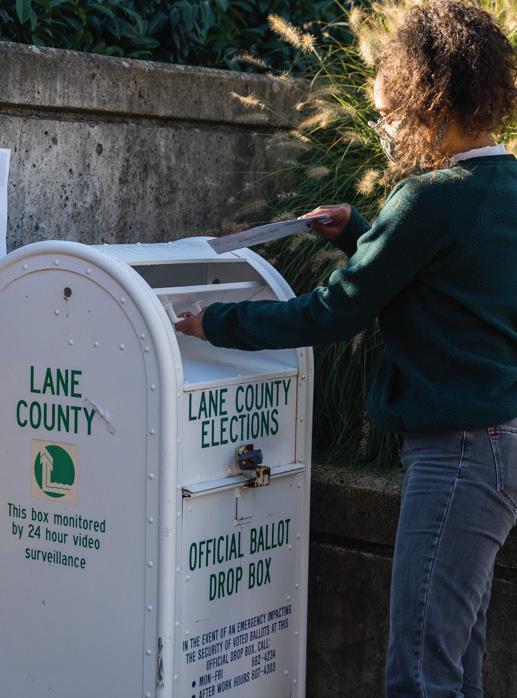
With the upcoming election, questions might arise about the voting process in Oregon. The Daily Emerald is providing a voter election guide that will be available to readers before Election Day.
Amazon Pool 2600 Hilyard St., Eugene.
Bethel Library 1990 Echo Hollow Rd., Eugene
Juvenile Justice Center
2727 MLK Jr Blvd., Eugene
Lane County Clerk’s Office
275 W 10th Ave., Eugene Lane County Public Service Building 777 Pearl St., Eugene Lane County Public Works
3050 N Delta Hwy., Eugene River Road Park & Recreation District 1400 Lake Dr., Eugene Sheldon Library 1566 Coburg Rd., Eugene University of Oregon Erb Memorial Union 1395 University St., Eugene
W
Congresswoman Val Hoyle representing Oregon’s Fourth Congressional District is running for reelection, opposed by Republican candidate Monique DeSpain, Libertarian candidate Dan Bahlen and Green Party candidate Justin Filip.
Kaarin Knudson, who had previously won the primary election in May, is running unopposed for mayor of Eugene. Eugene City Council candidates include Eliza Kashinsky for Ward 1, Matthew Keating for Ward 2, Lyndsie Leech for Ward 7 and Randy Groves for Ward 8.
The candidates for the Eugene Water & Electric Board include Tim Morris for Wards 1 and 8, John Barofsky for Wards 2 and 3 and Sonya Carlson for Wards 6 and 7.
Running for the Oregon House District 12 representative seat is Democratic candidate Michelle Emmons and Republican candidate Darin Harbick. The 12th District covers Eastern Lane County and most of the rural Lane County cities.
Incumbent Democratic Representative John Lively is running against Republican candidate Cory Burket to represent Oregon’s 7th House District, which covers parts of Eugene and Springfield.
Democrat Lisa Fragala is running unopposed for Oregon House District 8, which includes much of Eugene and the University of Oregon.
With key races on the ballot for Eugene voters, some shared their thoughts and concerns about election season.
Acacia Grant, a Eugene resident, said that her biggest concern for the upcoming election was the misinformation voters could consume online.
“People don’t even know which sources are the right sources,” Grant said. “There’s such a culture of seeing different things, whether you’re on TikTok like me or on Facebook. No matter which way it goes I think it’s easy to internalize what you see online without fact-checking.”
Lisa McElroy, an artist and vendor at the Eugene Saturday Market, said that the upcoming election was “a little unnerving.”
“My fingers are crossed that it goes the way I want it to go,” McElroy said. “I think one might win and the other one’s going to cause a little chaos. That’s my feeling.”
Voter demographics are determined by the race, age, sex and background of voters, among
other attributes. According to the Pew Research Center, in adults 18-29, voter registration is typically lower than that of older adults.
Low registration counts within the younger generation may be attributed to an absence of information, struggling to plan ahead to vote, family, voter apathy and other personal reasons that may inhibit voter turnout.
In Eugene, 119,679 people are registered to vote. Of these, 53,972 voters are registered Democrats, 39,895 voters are non-affiliated voters and 17,375 voters are registered Republicans.
Non-affiliated voters are registered voters who are not a part of a political party.
This is not the same as Independent voters, who are registered with the Independent Party of Oregon.
In a research study conducted by the Pew Research Center, 21% of Democrats were adults 18-29– standing at a lower percentage than those older than them. The same age group made up just 15% of Republican voters.
According to Lane County Elections, 279,008 people are registered to vote in Lane County. Out of that number, 101,611 voters are registered Democrats and 60,711 are registered Republicans. The remaining 96,472 people are NAVs.
In recent presidential elections, Oregonians have voted in favor of Democratic candidates.
Population centers in Oregon, like Portland and Eugene, are heavily correlated to Democratic votes. Outside of these centers, however, much of the state tends to lean Republican – this can be best attributed to the Emerald’s map showing the vast majority of Oregon voted red in its 2022 Gubernatorial race.
According to Dawson, understanding voter demographics is crucial when considering how political campaigns address concerns and when deciding which groups of people they try to contact during election season. Dawson added that it’s important to Lane County Elections that their office is as transparent as possible and that voters have access to the right information in order to make an informed decision on who to vote for.
“Part of our radical transparency is making sure that we’re answering the questions before people have them,” Dawson said. “I think the most important thing for people to know is to start with our website. If the answer to the question you have isn’t there, contact us. That’s our goal, it’s to answer any questions and to rebuild trust in the process.”
The Emerald ran polls on its social media to collect data about the upcoming election. Here are the answers from our 88 responses. Be on the lookout for upcoming content and polls on our Instagram and our website.
On a scale of 1-5, how aware are you of local politics and the ballot?
What state are you registered to vote in?
Who do you expect to win the election?
Top five issues on the ballot that matter most to people
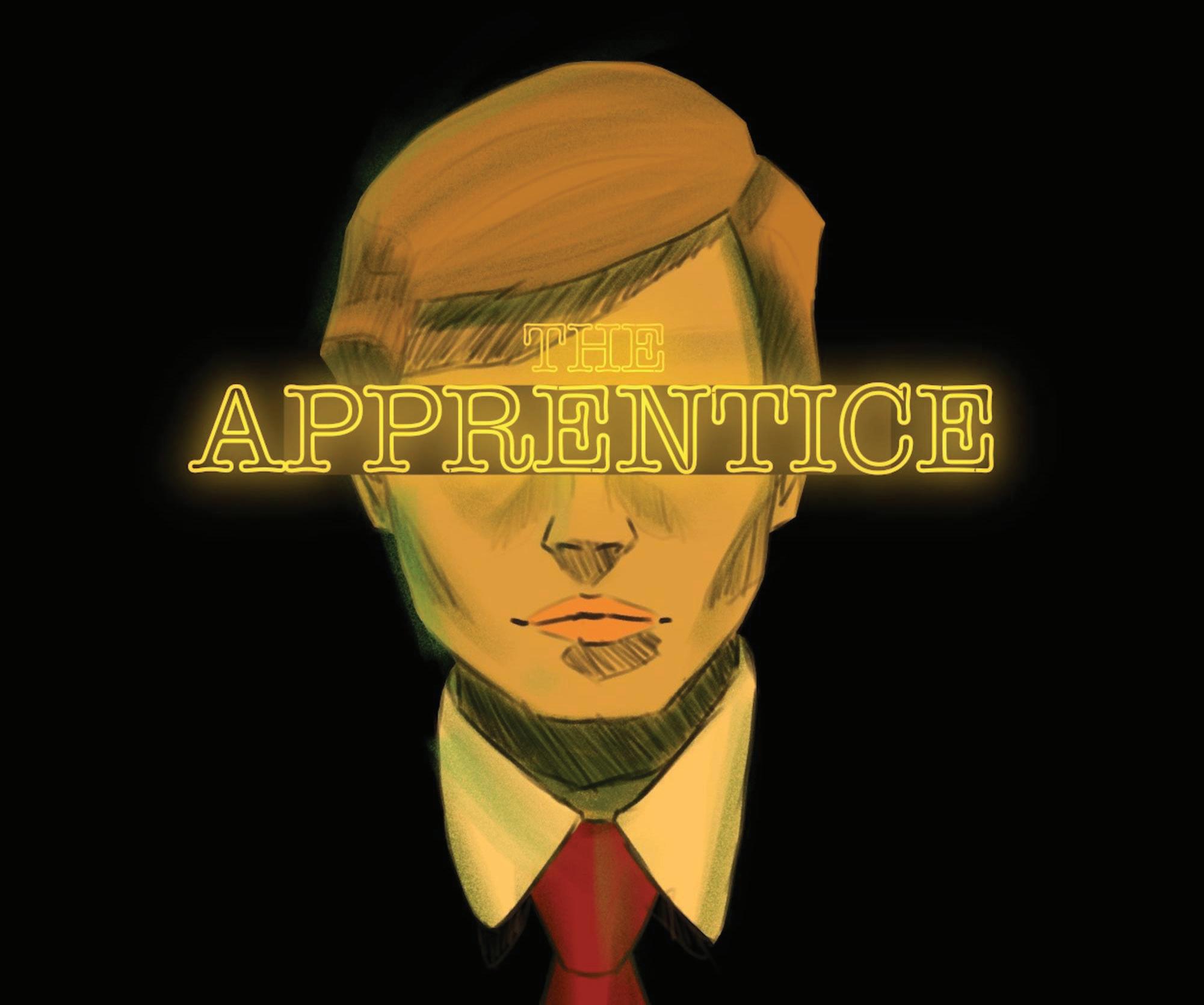
(Noa Schwartz/Emerald)
Filmmaker Ali Abbasi transforms Sebastian Stan into Former President and Republican nominee Donald Trump in biopic, “The Apprentice.” The film hit theaters on Oct. 11.
By Sean Avery Arts & Culture Writer
As America begrudgingly counts down the days to a contentious November election, Hollywood tackles the Republican nominee’s ascent to power. Filmmaker Ali Abbasi’s Trump biopic, “The Apprentice,” doesn’t offer a concrete political take. It doesn’t sensationalize or demonize, instead opting to let the former president’s actions speak for themselves.
The only thesis “The Apprentice” aims to convey is that the man we know today, from his personality and politics to his mindset, has existed for quite some time. Now a profoundly divisive, inescapable contemporary figure, the movie shows that Donald Trump has been clawing for power since the ‘70s.
Though lacking anything particularly revelatory, “The Apprentice” is a fascinating, relevant portrait of a domineering mind. Sebastian Stan’s transformative lead performance, coupled with outstanding support from Jeremy Strong, produces a grimly comical, gripping horror show.
“The Apprentice” zeroes in on a young, eager Donald Trump, hoping to erect his legacy as a New York property tycoon. His trajectory quickly changes at the hands of cutthroat attorney Roy Cohn, who recognizes Trump as an ideal protégé and teaches him what it takes to be a winner. Gliding through decades of their relationship, the film sees
an ambitious young man evolve into an egotistical, unrelenting figure of wealth and authority.
Although the casting of Hollywood heartthrob and Marvel mainstay Stan might have come out of left field, he crushes this role out of the park, encapsulating Trump down to the subtlest lip movement. His voice isn’t a one-toone match, but it doesn’t have to be. What he’s saying and how he expresses himself embodies the former president far more deeply than any impersonator could.
In the beginning, he plays Trump as a pathetic wannabe, pitifully leeching on to his father’s success. Slowly but surely, he becomes increasingly recognizable, sporting Trump’s iconic hand gestures and hyperbolic tendencies. Stan captures a more spritely, well-adjusted side of Trump that gradually fizzles into the unpredictable lunacy of today. It’s almost frightening how well he can mirror portions of a man while offering inkling after inkling on the portions to come. Sometimes he’s funny, sometimes he’s aggressive and sometimes he’s abhorrent. Stan accesses it all.
Strong, who rose to acclaim as Kendall Roy in “Succession,” molds into Roy Cohn. His sunken, zombie eyes match his monotone New York accent. He’s calmly manipulative, uttering the most appalling things you’ll hear with the softest, goofiest cadence. As Trump outlasts his need for Cohn, Strong grows weaker, appearing like a corpse as sickness takes over. Above anything else, it’s Strong and Stan that make this movie.
Maria Bakalova, as Ivana Trump, contributes another excellent performance. Her fascination with Trump, particularly his money, morphs into disgust as he grows increasingly power-hungry and erratic.
Transitioning into the technical side of the aisle, “The Apprentice” is thoroughly well-executed. It’s primarily shot in a documentary/mockumentary style, which helps sell its reality. There’s a graininess to the camera that effectively captures the time period as if it were presented through the media decades ago.
The production design and costumes also represent the 1970s and 1980s effectively. Trump Tower’s lavish, gaudy interiors are the perfect eye-sore. Bakalova’s various hairstyles are especially memorable.
The makeup is the brilliant cherry on top, sculpting Stan and Strong into unrecognizable versions of themselves. In all aspects, the film does a great job of illuminating the passage of time through appearance.
Abbasi’s “The Apprentice” will not change anyone’s mind. Everything here is widely known and accessible to all who wish to research Donald Trump’s life. But its spectacular performances produce an endlessly watchable glimpse into the formation of a fascinating figure. No matter one’s political affiliation, it’s worth a watch.
Popcorn rating: 4/5 bags of popcorn




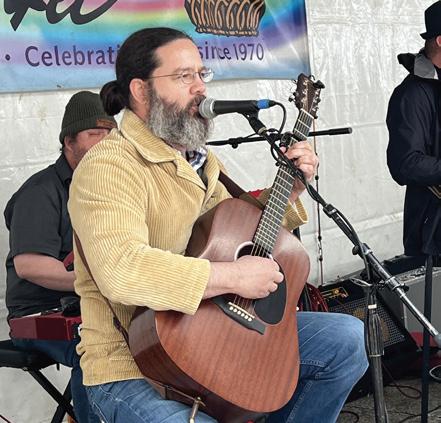








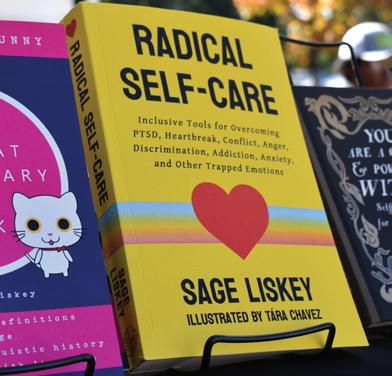

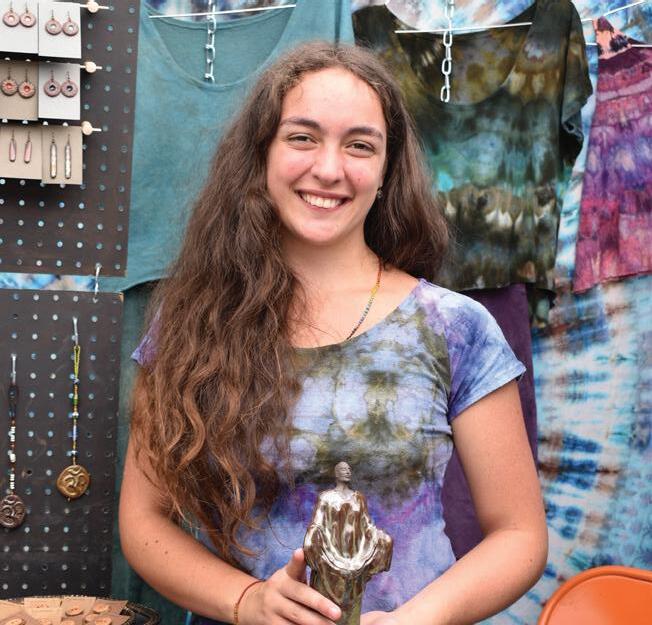

Savanna woodlands, to a giraffe
“Well done!”
“Maybe your iPhone can answer that”
Terse “Well, duh!”
The Ducks quarterback’s current standing in the race to the most prestigious award in collegiate football
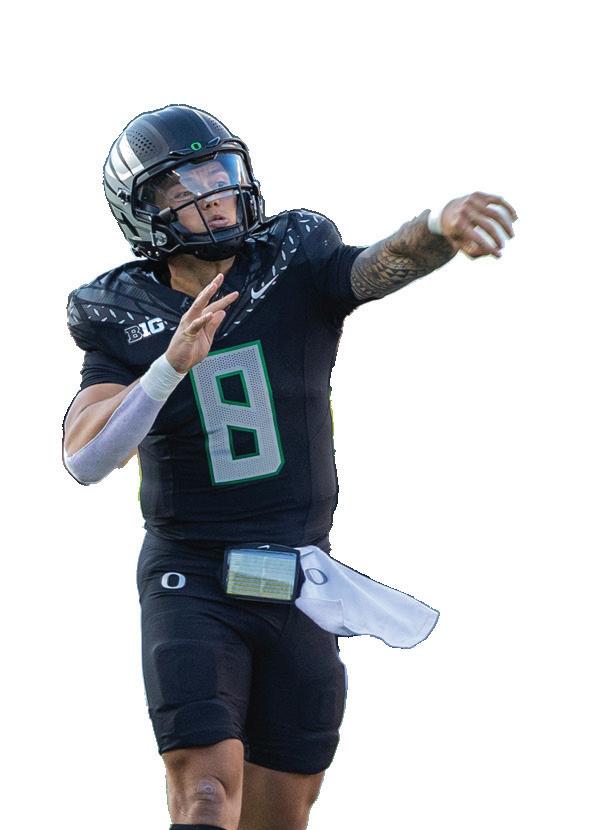
Oregon Volleyball vs. Washington @UW on Wednesday at 6:30 p.m. (Molly
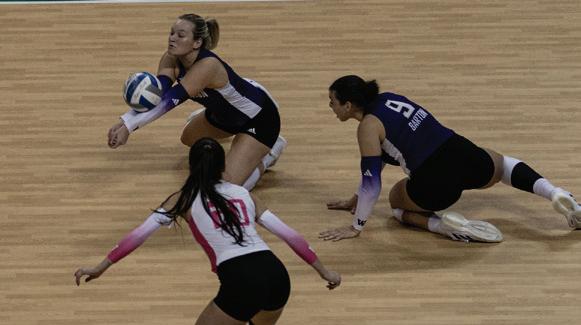
SATURDAY
Nov. 2, 2024
Oregon vs. University of Michigan
Even though sports could seem far removed from this election, NIL is one subject to consider in how politics relates to college sports
By Jack Lazarus Sports Associate Editor
There’s not much these days that unites politicians. Even bipartisan bills, meant to appease each side, have been shot down in Congress recently.
At the same time, issues surrounding sports don’t tend to make their way to the political scene, aside from Title IX as it pertains to college sports. Even then, the issue never really separates the two major political parties in this country.
That’s why, as the college sports atmosphere shifted to incorporate the Name, Image and Likeness contracts we see today, the politics surrounding it were clear-cut.
Simply put, everyone makes money under NIL. For the schools, it creates a drive to donate and boost the sports programs. For external companies, they get the added ben-
efit of having a notable athlete, and often a national star, to promote their product or service.
And for the athletes, they have the opportunity to make money through promotions and brand deals. That’s the main driver of NIL becoming a unifying topic in Washington D.C. — it just works for everyone.
The feeling has caused even Republican Senators such as Ted Cruz (R-TX) and Tommy Tuberville (R-AL) to team up with the Independent Senator Joe Manchin (I-WV) and Democratic Senators such as Cory Booker (D-NJ) in order to draw up ways to make the fairly new concept of NIL run smoother.
For example, Booker, along with Richard Blumenthal (D-CT) and Jerry Moran (R-KS), announced a bipartisan draft in July 2023 that created mediating organizations that monitored contract situations, promoted athletes’ health and wellness and brought more transparency, among many
other topics.
In July 2023, Manchin and Tuberville announced a draft bill of their own that took a more hands-on approach to managing the NIL landscape. This bill, for the most part, wanted to give schools more power to control NIL internally, as it discussed limiting boosters and NIL-centric donations that come from outside the university.
All in all, the sports world, other than the opinions of high-profile athletes, has little to say on this election. However, it’s important to consider the ramifications of each candidate’s ability to help get the previously discussed bills passed, so this NIL landscape can receive needed guidance through law.
